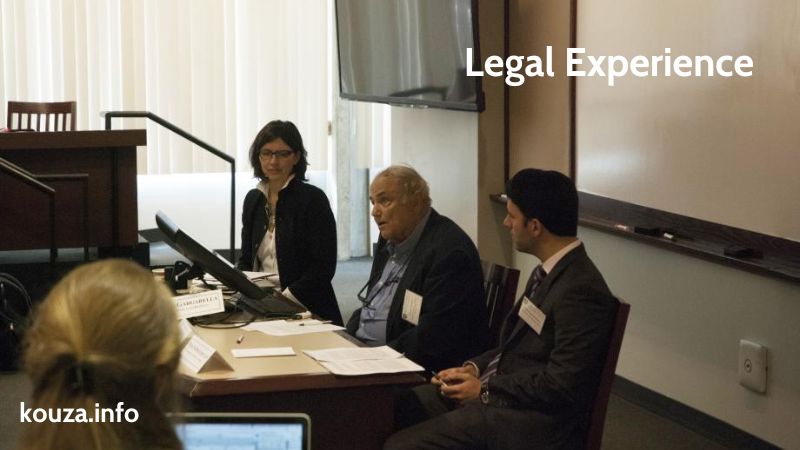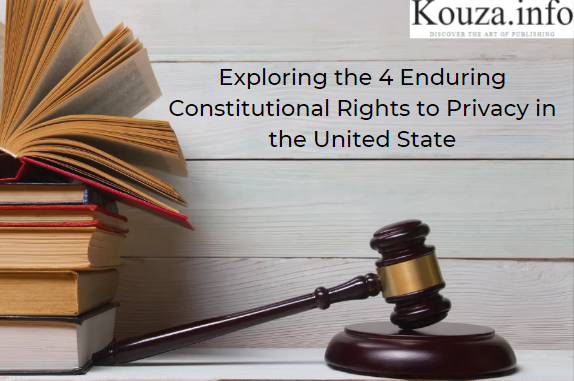
How long does it take to become a constitutional lawyer? It’s a question that often arises among aspiring legal professionals who are passionate about defending and interpreting the foundational principles of their nation’s constitution. Becoming a constitutional lawyer is not only a journey of academic and professional growth but also a commitment to upholding the rule of law and safeguarding individual rights. In this comprehensive guide, Kouza.info will outline the steps involved in pursuing this esteemed career path, shedding light on the educational requirements, professional milestones, and the dedication required to excel in this field.
How Long Does It Take To Become a Constitutional Lawyer
1. Undergraduate Education:
The journey to becoming a constitutional lawyer typically begins with obtaining a bachelor’s degree. How long does it take to become a constitutional lawyer? Well, it starts with about four years of undergraduate education. Aspiring lawyers often pursue degrees in fields such as political science, history, or pre-law, which provide a strong foundation in critical thinking, research, and analytical skills essential for success in law school and beyond.

2. Law School:
Once armed with an undergraduate degree, the next step is attending law school. How long does it take to become a constitutional lawyer from this point? Law school typically spans three years of full-time study. During this time, students delve into a wide array of legal subjects, including constitutional law. Courses in constitutional law focus on the interpretation and application of constitutional principles, landmark Supreme Court cases, and the evolving nature of constitutional jurisprudence. Additionally, participating in moot court competitions, law journals, or internships with constitutional law practitioners can provide invaluable practical experience and insights into this specialized field.
3. Bar Exam:
After graduating from law school, aspiring lawyers must conquer another significant hurdle: the bar exam. How long does it take to become a constitutional lawyer after passing the bar exam? The duration may vary depending on individual preparation and jurisdictional requirements. However, passing the bar exam is a crucial step towards obtaining a license to practice law. The exam typically assesses candidates’ knowledge of legal principles, analytical reasoning, and writing skills. Each jurisdiction sets its own standards for admission to the bar, so it’s essential to research and prepare diligently for the specific requirements of the jurisdiction where you intend to practice.
4. Legal Experience:
While not a strict requirement, gaining practical experience in the legal field can greatly enhance one’s journey to becoming a successful constitutional lawyer. How long does it take to become a constitutional lawyer with relevant legal experience? Securing internships, clerkships, or entry-level positions at law firms, government agencies, or non-profit organizations specializing in constitutional law can provide valuable hands-on experience and networking opportunities. Engaging in legal research, drafting legal documents, and participating in courtroom proceedings under the guidance of experienced practitioners can deepen one’s understanding of constitutional issues and refine essential advocacy skills.

5. Continuing Education and Specialization:
The journey to becoming a constitutional lawyer doesn’t end with obtaining a law degree and passing the bar exam. How long does it take to become a constitutional lawyer who is well-versed in the latest developments and nuances of constitutional law? It’s an ongoing process that requires a commitment to lifelong learning and professional development. Constitutional law is a dynamic and evolving field, shaped by judicial decisions, legislative actions, and societal changes. To stay abreast of emerging legal issues and developments, constitutional lawyers often engage in continuing legal education (CLE) programs, attend conferences, and participate in professional organizations dedicated to constitutional law.
6. Building a Career in Constitutional Law:
How long does it take to become a constitutional lawyer with a thriving career? The timeline varies for each individual, influenced by factors such as professional opportunities, networking, and personal goals. Some constitutional lawyers choose to practice in private law firms, representing clients in constitutional litigation, appellate advocacy, or providing counsel on constitutional matters. Others may pursue careers in academia, teaching constitutional law courses, conducting research, and contributing to scholarly publications. Additionally, opportunities abound in government agencies, where constitutional lawyers may serve as legal advisors, policymakers, or advocates for constitutional rights and liberties.

7. Making a Difference:
Beyond the academic and professional achievements, the true measure of success for a constitutional lawyer lies in their ability to make a positive impact on society. How long does it take to become a constitutional lawyer who champions justice, equality, and the rule of law? It’s an ongoing journey fueled by a passion for defending constitutional principles and advancing the cause of justice. Whether advocating for individual rights, challenging unconstitutional laws, or shaping public policy, constitutional lawyers play a vital role in upholding the principles enshrined in their nation’s constitution and ensuring that the promises of liberty and justice are realized for all.
Sum Up
In conclusion, the path to becoming a constitutional lawyer is a challenging yet rewarding journey that demands dedication, perseverance, and a deep commitment to the principles of constitutionalism. How long does it take to become a constitutional lawyer? It varies for each individual, but with determination, hard work, and a passion for justice, aspiring lawyers can embark on this noble pursuit and contribute meaningfully to the preservation of constitutional democracy and the protection of fundamental rights and freedoms.
Conclusion: So above is the How Long Does It Take To Become a Constitutional Lawyer: A Detailed Guide article. Hopefully with this article you can help you in life, always follow and read our good articles on the website: kouza.info
Related Articles
-
Best Law Schools For Constitutional LawMarch 27, 2023




